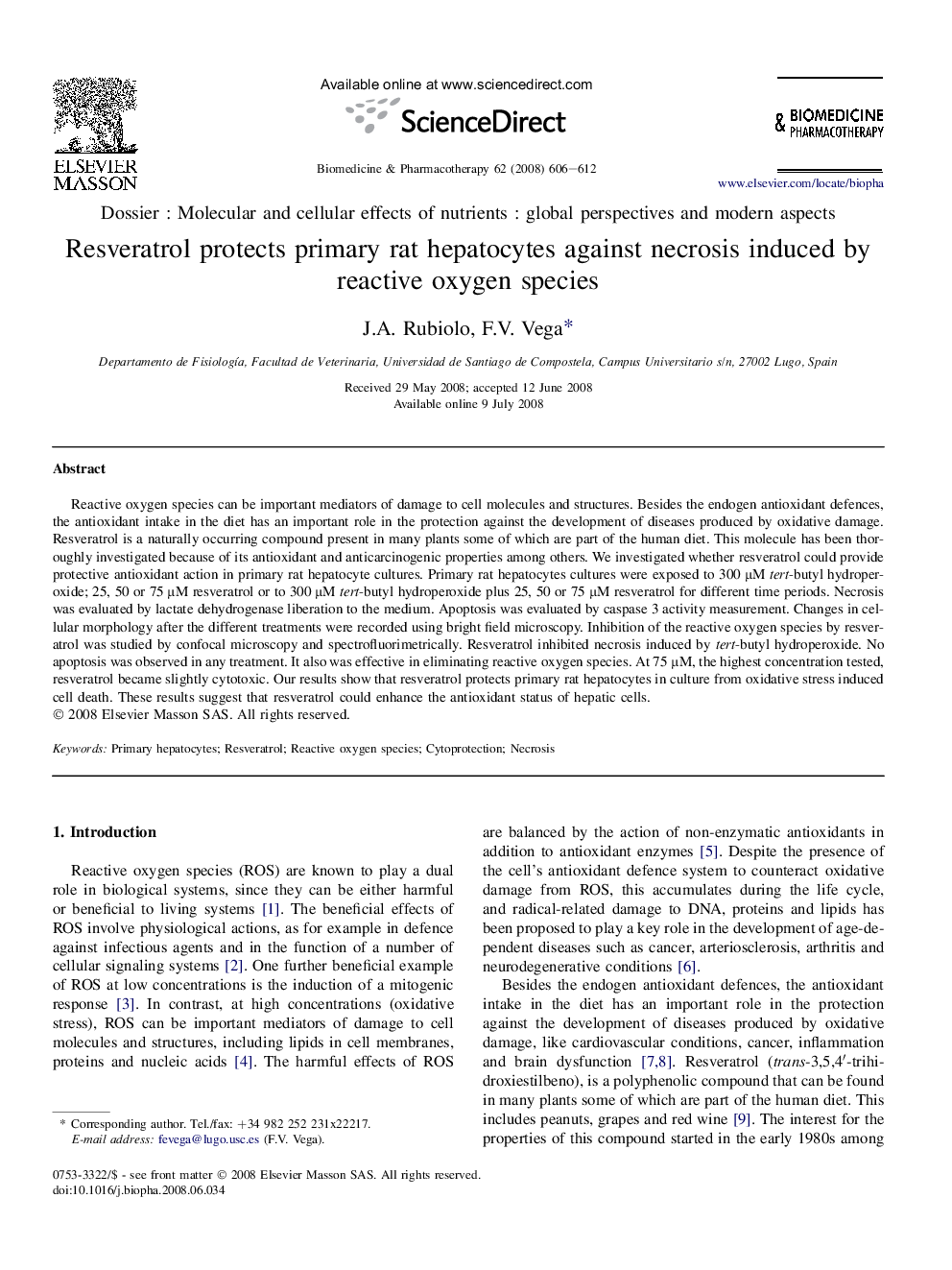| Article ID | Journal | Published Year | Pages | File Type |
|---|---|---|---|---|
| 2525496 | Biomedicine & Pharmacotherapy | 2008 | 7 Pages |
Reactive oxygen species can be important mediators of damage to cell molecules and structures. Besides the endogen antioxidant defences, the antioxidant intake in the diet has an important role in the protection against the development of diseases produced by oxidative damage. Resveratrol is a naturally occurring compound present in many plants some of which are part of the human diet. This molecule has been thoroughly investigated because of its antioxidant and anticarcinogenic properties among others. We investigated whether resveratrol could provide protective antioxidant action in primary rat hepatocyte cultures. Primary rat hepatocytes cultures were exposed to 300 μM tert-butyl hydroperoxide; 25, 50 or 75 μM resveratrol or to 300 μM tert-butyl hydroperoxide plus 25, 50 or 75 μM resveratrol for different time periods. Necrosis was evaluated by lactate dehydrogenase liberation to the medium. Apoptosis was evaluated by caspase 3 activity measurement. Changes in cellular morphology after the different treatments were recorded using bright field microscopy. Inhibition of the reactive oxygen species by resveratrol was studied by confocal microscopy and spectrofluorimetrically. Resveratrol inhibited necrosis induced by tert-butyl hydroperoxide. No apoptosis was observed in any treatment. It also was effective in eliminating reactive oxygen species. At 75 μM, the highest concentration tested, resveratrol became slightly cytotoxic. Our results show that resveratrol protects primary rat hepatocytes in culture from oxidative stress induced cell death. These results suggest that resveratrol could enhance the antioxidant status of hepatic cells.
